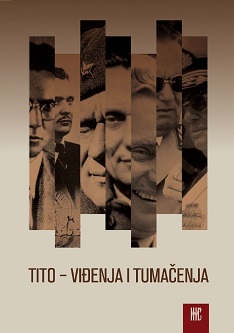Sovjetsko-jugoslovenski sukob 1948.godine: Loša volja Staljina ili svestan izbor Josipa Broza Tita. Problem interpretacije
The Soviet-Yugoslav Conflict of 1948: Stalin's Bad Will or Tito's Conscious Choice. The Problem of Interpretation
Author(s): Anatolij Anikejev
Subject(s): Diplomatic history, Political history, International relations/trade, WW II and following years (1940 - 1949), Peace and Conflict Studies
Published by: Institut za noviju istoriju Srbije
Keywords: the Soviet Union; Yugoslavia; Joseph Stalin; Josip Broz Tito; Soviet-Yugoslav conflict; the pressure on Yugoslavia;
Summary/Abstract: The author examines the Soviet-Yugoslav conflict in the context of forming the block of „popular democracy" headed by the USSR and the emergence of new elements in Soviet foreign policy. The task of Kremlin, in an increasingly bipolar confrontation was to ensure absolute control over the satellites. Tito was supposed to submit to Stalin as he did before, otherwise February 1948 was to become a milestone in his willingness to unconditionally carry out „advices" from Moscow and the beginning of a conscious (or forced) movement in the direction of „national communism". Could Stalin compromise or he decided to escalate disputes to conflict seeking in order to prevent the violation of in-system hierarchical discipline, that, in addition, threaten Soviet interests in the region. Clash of ambitions of the two authoritarian leaders, or their own ideas about how to develop the „people’s democracies" and socialism, a battle of two „biblical Heroes", as is often depicted in historiography, or real conflict of national interests of both countries - these are the questions to which the author tries to answer in his brief study of the problem.
Book: Tito - Viđenja i tumačenja
- Page Range: 461-465
- Page Count: 5
- Publication Year: 2011
- Language: Serbian
- Content File-PDF

